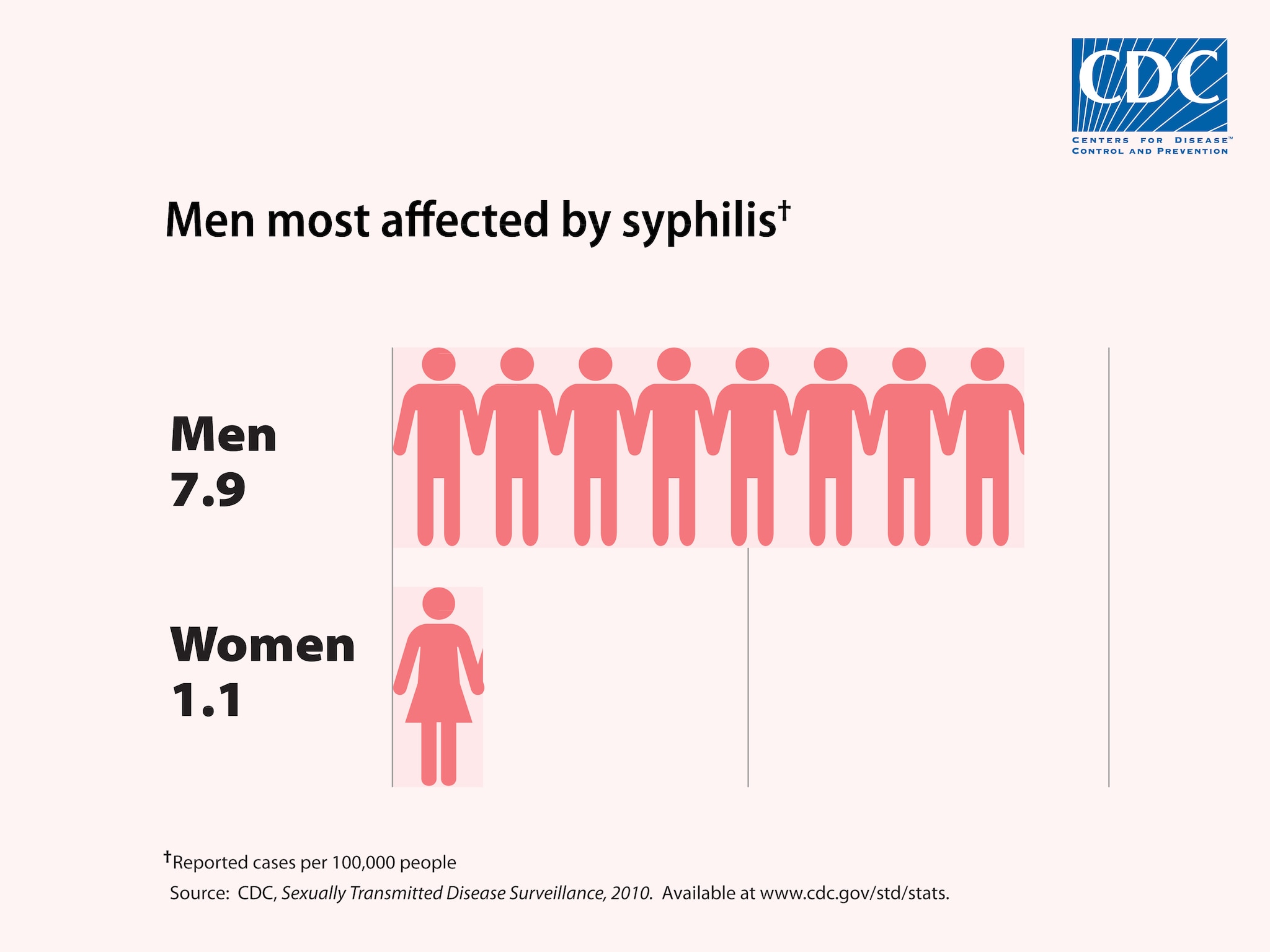Syphilis is a sexually transmitted disease caused by the bacterium Treponema pallidum. Syphilis is transmitted by contact with a chancre, or s syphilitic sore and symptoms appear an average of 21 days later.

Symptoms:
- sores
- fever
- swollen lymph nodes
- sore throat
- patchy hair loss
- headaches
- weight loss
- fatigue
If the bacterium enters the nervous system, symptoms can range from:
- none
- headache
- altered behavior
- movement problems that look like
Parkinsons
Of the 55,400 people who get Syphilis annually, men who have sex with men counted for 72% with the second highest group being African American, Hispanic, and other racial minority groups. Syphilis affect minorities and men who have sex with men the most because they are the group that have less access to resources and more stigmatization.
Because Syphilis is treatable, a person who has access should have no trouble the necessary treatment but sometimes there are other factors that can keep a person from being treated, such as fear of judgement or abuse.
In 1932, the Public Health Institute studied the natural history of syphilis in Tuskegee, Alabama. Doctors and nurses pretended to treat African American men who were infected with syphilis but were actually not treating it at all. There were 600 men in the study, 399 with syphilis, that were not informed of the study and were actually kept from procuring treatment. The study, which was supposes to only last 6 months ended up going for 40 years! Although no conclusions were made from the study, informed consent has since become a principle in health care because of the study.





No comments:
Post a Comment